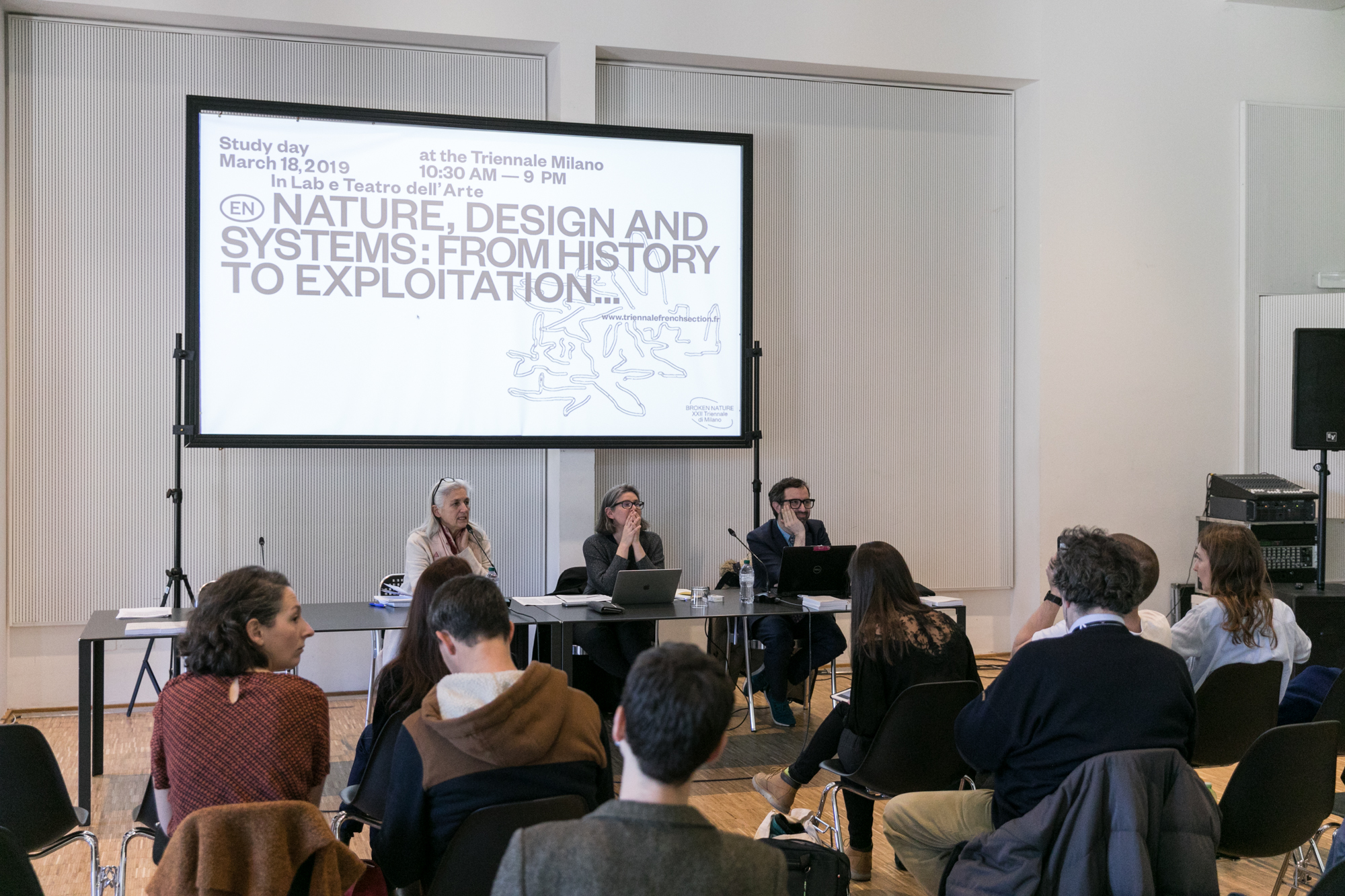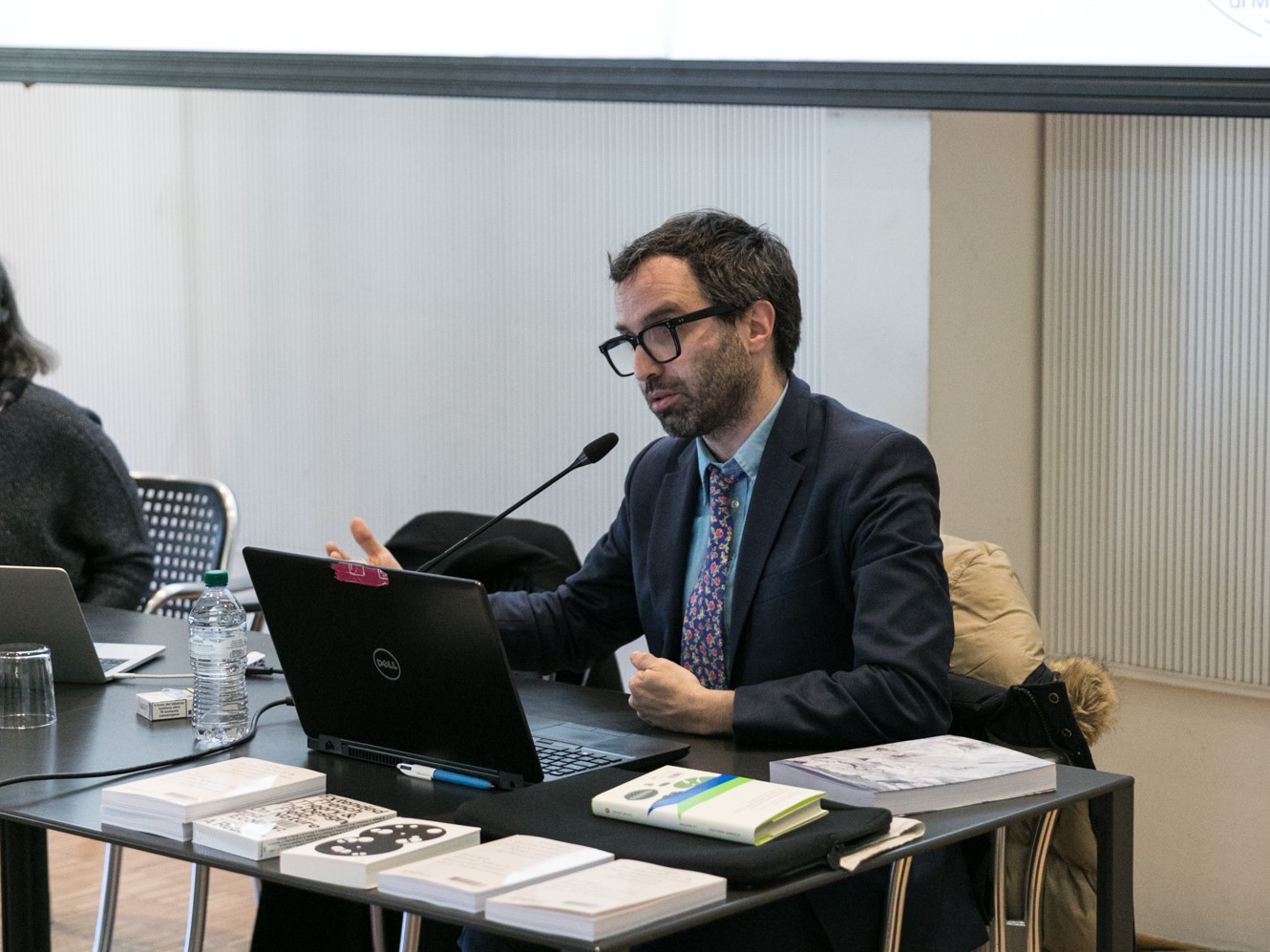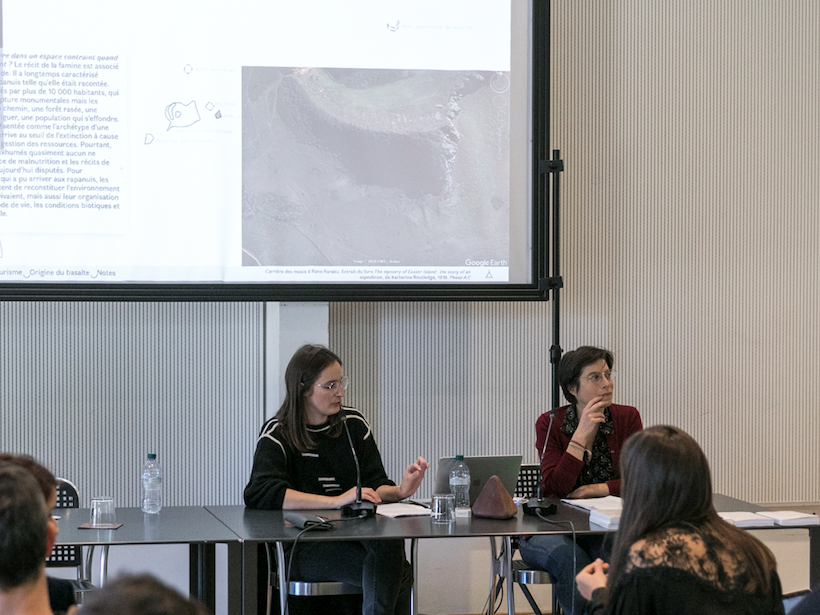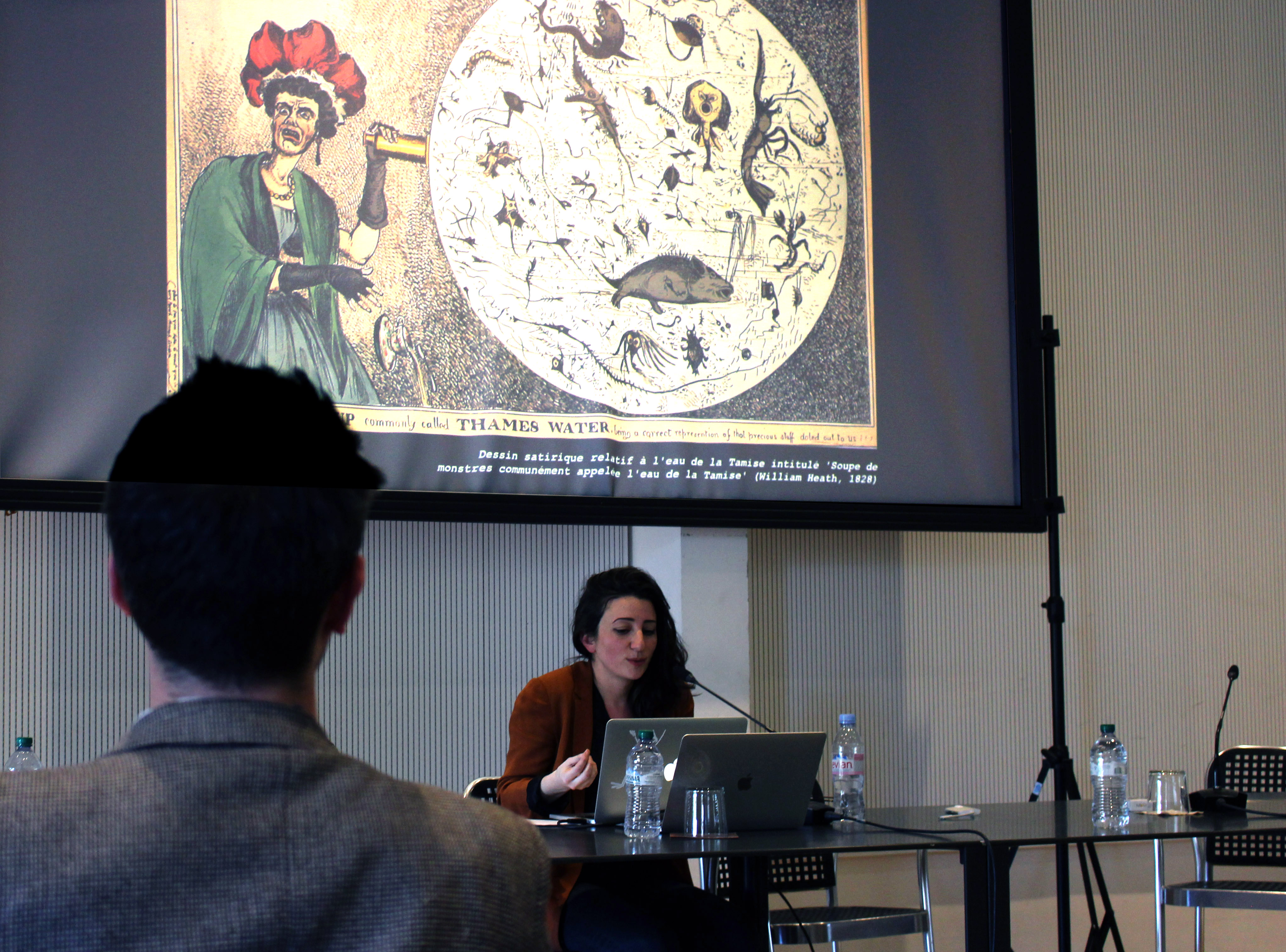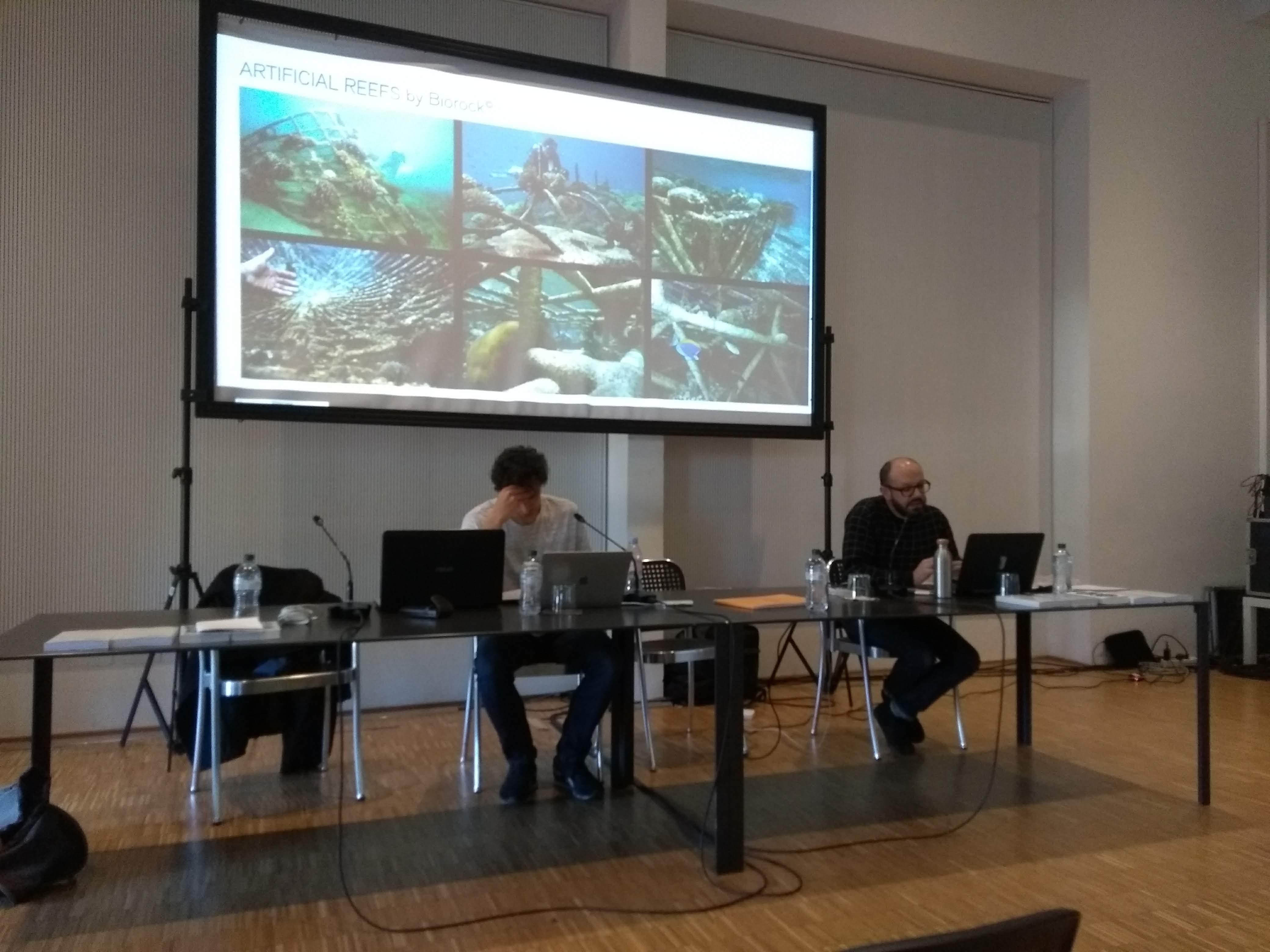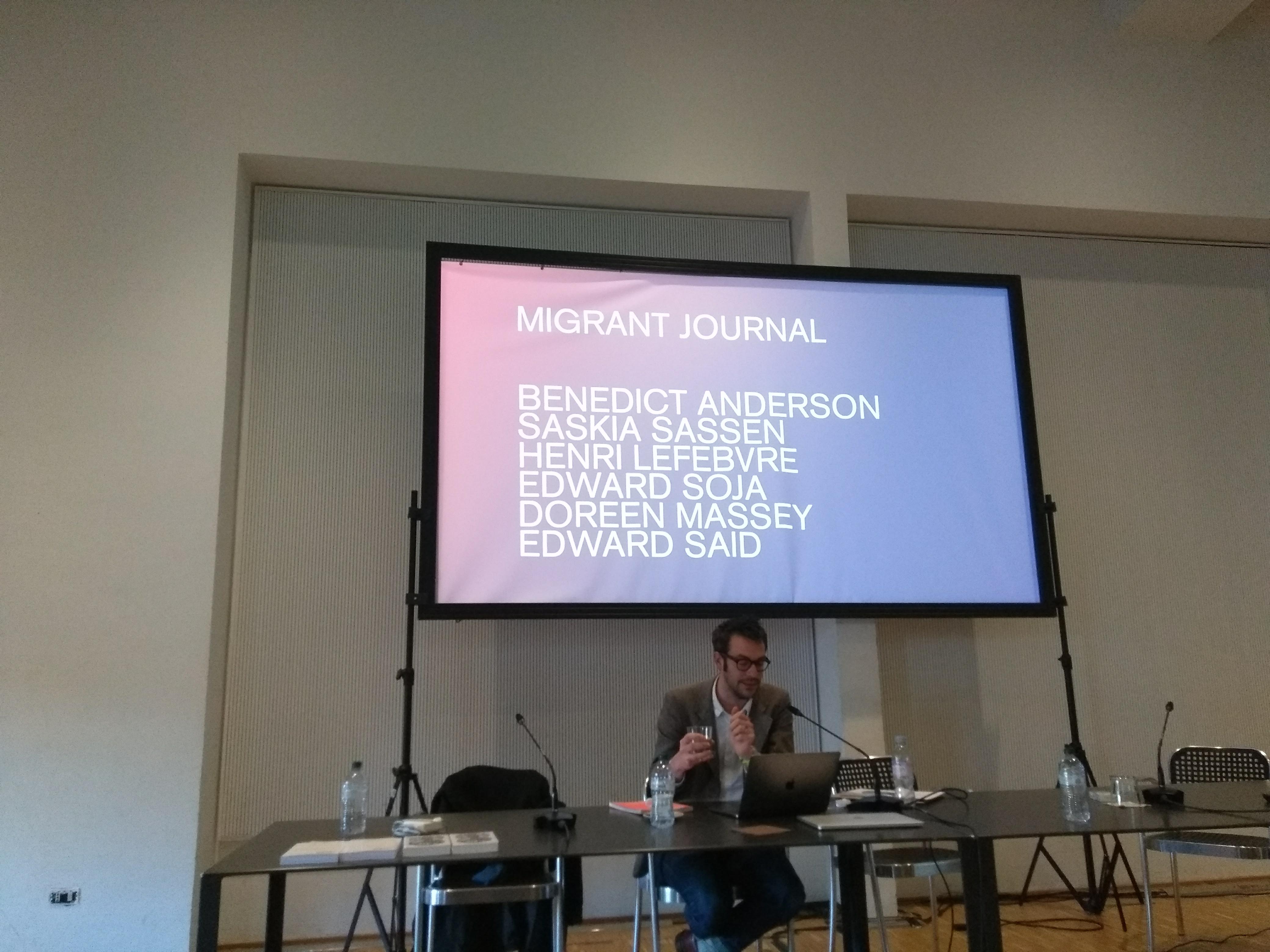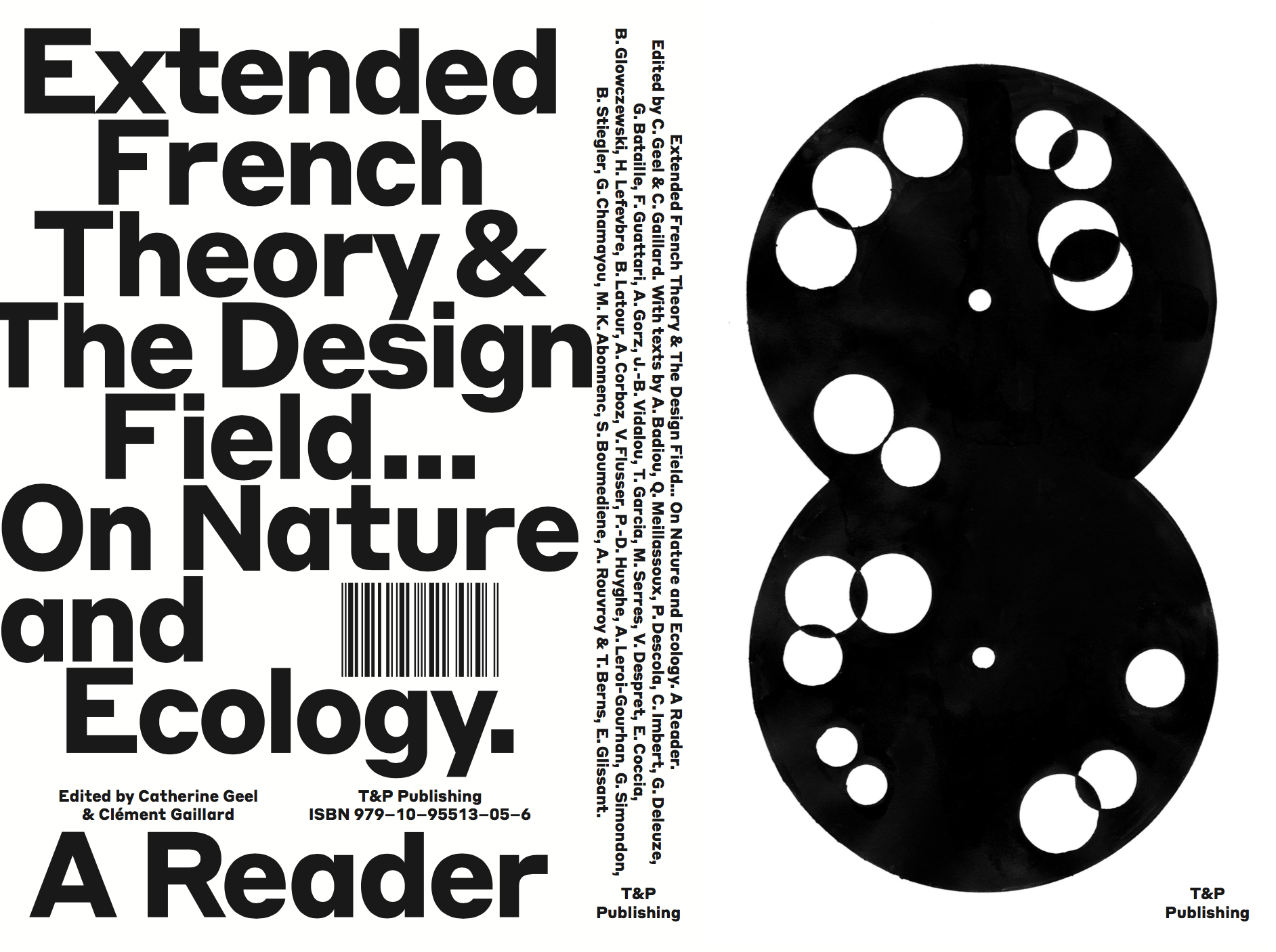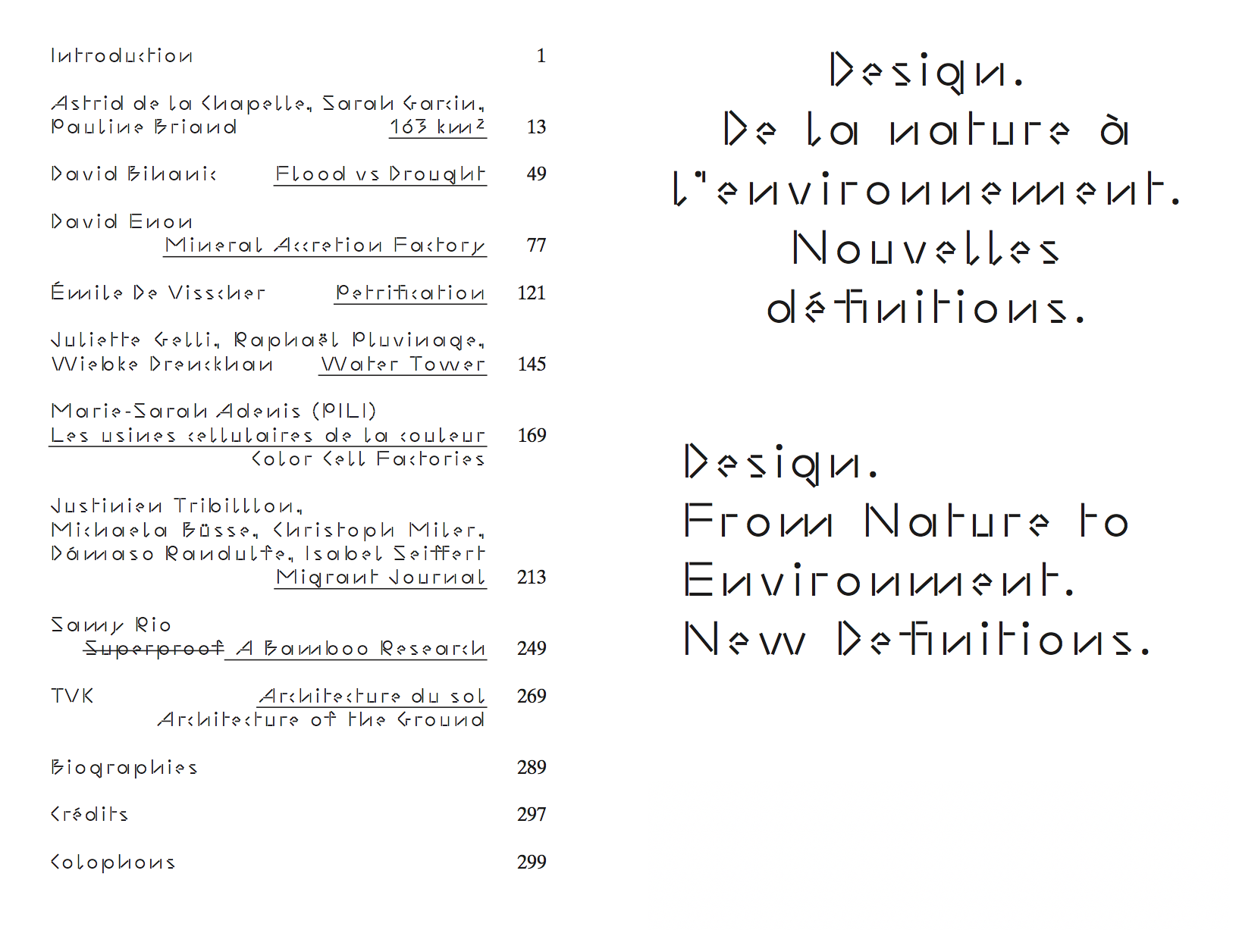Mathieu K. Abonnenc
Fear of Insects, Fear of Incest: Sector IX B, Sleeping Sickness Prophylaxis, [2014].
In Extended French Theory & the Design Field on Nature and Ecology. A Reader, edited by C. Geel and C. Gaillard, translated by Susan Pickford. Paris: T&P Publishing, 2019.
Le chercheur et ses doubles. Paris: Éditions B42, 2016
Gaston Bachelard
The Formation of the Scientific I Mind: A Contribution to a Psychoanalysis of Objective Knowledge, edited, translated and notes by Mary McAllester Jones. Manchester: Clinamen Press, 2002.
Alain Badio
Lessons on Nature, 2000-2001 [2018].
In Extended French Theory & the Design Field on Nature and Ecology. A Reader, edited by C. Geel and C. Gaillard, translated by Susan Pickford. Paris: T&P Publishing, 2019.
Agregation courses École normale supérieure de la rue d’Ulm, October 19th 2000, edited by Isabelle Vodozanc and Clément Gaillard. Paris, 2018.
J.D. Barrow and F.J. Tipler
The Anthropic Cosmological Principle. Oxford: Oxford University Press, 1986.
Georges Bataille
The Accursed Share: An Essay on General Economy [1949]. Vol 1: Consumption, New York: Zone Books, 1988.
La Part Maudite. Essai d’économie générale [1949]. Tome 1. La consommation, Paris: Minuit, Coll. Critique, 1967.
Jean Baudrillard
The System of Objects, translated by James Benedict. London: Verso Books, 1996.
Walter Benjamin
Illuminations [1973], edited by Hannah Arendt, translated by Harry Zohn. London: Fontana, 1992.
Jacques Bertin
La graphique et le traitement graphique de l’information. Bruxelles: Zones sensibles, 2017.
Augustin Berque
Milieu et Identité Humaine, notes pour un dépassement de la modernité. Paris: Donner Lieu, 2010.
Christophe Bonneuil and Jean-Baptiste Fressoz
Shock of the Anthropocene, translated by David Fernbrach. London: Verso, 2016.
Patrick Bouchain
Construire ensemble, le Grand Ensemble : habiter autrement. Arles: Actes Sud, 2010.
Samir Boumediene
Knowledge and life [2016].
In Extended French Theory & the Design Field on Nature and Ecology. A Reader, edited by C. Geel and C. Gaillard, translated by Nancy Burgess. Paris: T&P Publishing, 2019.
La colonisation du savoir : Une histoire des plantes médicinales du “Nouveau Monde” (1492-1750). Vaulx-en-Velin: Éditions des Mondes à faire, 2016.
Nicolas Bourriaud
L’esthétique relationnelle. Paris: Les Presses du réel, 1998.
Levi R. Bryant
The Democracy of Objects. Ann Arbor: University of Michigan Library Open Humanities Press, 2011.
Italo Calvino
Una pietra sopra: Discorsi di letteratura e società. Turin: Einaudi, 1980.
The Literature Machine: Essays, translated by Patrick Creagh. London: Secker & Warburg, 1987.
Aimé Césaire
Discourse on Colonialism, translated by Joan Pinkham. New York/London: Monthly Review Press, 2001.
Grégoire Chamayou
Manhunts: A Philosophical History, translated by Steven Rendall. Princeton: Princeton University Press, 2012.
Les chasses à l’homme : Histoire et philosophie du pouvoir cynégétique. Paris: La Fabrique-Éditions, 2010.
Gilles Clément
« The Planetary Garden » and Other Writings. Pennsylvania: University of Pennsylvania Press, 2015.
Manifeste du tiers paysage. Paris: Éditions Sens et Tonka, 2014.
Le jardin planétaire : Réconcilier l’homme et la nature. Paris: Albin Michel, 1999.
Emanuele Coccia
The Life of Plants: A Metaphysics of Mixture. Cambridge: Polity Press, 2018.
La Vie des plantes : Une métaphysique des mélanges. Paris: Payot, 2016.
André Corboz
Le Territoire comme palimpseste et autres essais, edited by Sébastien Marot. Besançon : Les éditions de l’imprimeur, Tranches de villes, 2001.
The Land as Palimpest, translated by R. Scott Walker. In Diogène 31, no. 121, 1983.
Brian Cox
Wonders of the Universe, season 1, episode 1. United Kingdom: BBC, 2010.
René Daumal
Mount Analogue. Londres: Gerald Duckworth & Co Ltd, 2005.
Le mont analogue. Paris: Gallimard, 1981.
Gilles Deleuze
Desert Islands and Other Texts, 1953–1974, edited by David Lapoujade, translated by Mike Taormina. Los Angeles: Semiotext(e), Foreign Agents Series, 2004.
L’Île déserte. Textes et entretiens 1953–1974, edited by David Lapoujade. Paris: Minuit, 2002.
Lucretius and the Simulacrum.
In The Logic of Sense, edited by Constantin V. Boundas, translated by Marc Lester and Charles Stivale. New York: Columbia University Press, 1990.
Deleuze and Guattari
A Thousand Plateaus, translated by Brian Massumi. Minneapolis: University of Minnesota Press, 1987.
Anti-Oedipus: Capitalism and Schizophrenia, translated by Robert Hurley, Mark Seem, and Helen R. Lane. Minneapolis: University of Minnesota Press, 1983.
Jacques Derrida
L’animal que donc je suis. Paris: Galilée, 2006.
Philippe Descola
Par-delà nature et culture. Paris: Gallimard, 2015.
The Ecology of Others: Anthropology and the Question of Nature. Chicago : Prickly Paradigm, 2013.
L’Écologie des autres. L’anthropologie et la question de la nature. Paris: Quae éditions, 2011.
Vinciane Despret
What Would Animals Say If We Asked the Right Questions? Minneapolis: University of Minnesota Press, 2016.
Que diraient les animaux si… on leur posait les bonnes questions ? Paris: La Découverte, 2012.
Georges Didi-Huberman
L’image survivante. Paris: Les éditions de minuit, 2002.
Ludovic Duhem
Le sens du social pour le design.
In Design écosocial, convivialité, pratiques situées, nouveaux communs, Paris: It, 2018.
Johannes Fabian
Time and the Other. How Anthropology Makes Its Objects. New York: Columbia University Press, 1983.
Cynthia Fleury
Le souci de la nature, apprendre, inventer, gouverner. Paris: CNRS éditions, 2017.
Vilém Flusser
The Living and the Artificial [1982].
In Extended French Theory & the Design Field on Nature and Ecology. A Reader, edited by C. Geel and C. Gaillard, translated by Linda Gardiner. Paris: T&P Publishing, 2019.
Michel Foucault
The birth of Biopolitics: lectures at the Collège de France, 1978–1979. Basingstoke: Palgrave Macmillan edited by Michel Sennellart, 2008.
The Order of Things: An Archaeology of the Human Sciences. New
York: Vintage Publishing, 1994.
Tristan Garcia
Letting Be Volume II: We. Edinburgh: Edinburgh University Press, forthcoming.
Nous. Paris: Grasset, 2016.
Édouard Glissant
Caribbean Discourse: Selected Essays. Charlotteville: University Press of Virginia, 1989.
Le discours antillais. Paris: Seuil, 1981.
Barabara Glowczewski
Desert Dreamers. Minneapolis: Univocal Publishing/University of Minnesota Press, 2016.
Les Rêveurs du désert. Peuple Walpiri d’Australie. Arles: Actes Sud poche, 1999.
André Gorz
Ecologica. London: Seagull Books, 2010.
Écologica. Paris: Galilée, 2008.
Farewell to the Working Class: An Essay on Post-Industrial Socialism, translated by Michael Sonenscher. London: Pluto Press, 1982.
Susan Griffin
Woman and Nature. New York: Harper & Row, 1978.
Felix Guattari
The Three Ecologies. London: The Athlone Press, 2000.
Les Trois écologies. Paris: Galilée,1989.
Emilie Hache
“Du sacré dans la nature ou dans le capitalisme ? Note sur la morale du capitalisme en temps de crise écologique.” Actes du colloque Y a-t-il du sacré dans la nature ? Paris: publications de la Sorbonne, 2014.
« Is responsibility a tool of neo-liberal governmentality?” Raisons politiques, vol. no. 28, no. 4, 2007.
Ghassan Hage
Is Racism an Environmental Threat? Malden, MA: Polity Press, 2017.
Graham Harman
The Quadruple Object. Hampshire: Zero Books, 2011.
Donna Haraway
Simians, Cyborgs, and Women: the Reinvention of Nature. New York: Routledge, 1991.
Martin Heidegger
The Question Concerning Technology and Other Essays. New York: Harper & Row, 1977.
Pekka Himanen
The Hacker Ethic and the Spirit of the Information Age. London: Secker and Warburg, 2001.
Thierry Hoquet
Cyborg Philosophie: Penser contre les dualismes. Paris: Le Seuil, 2011.
Pierre-Damien Huyghe
Plea for a Hospitable Technology [2011].
In Extended French Theory & the Design Field on Nature and Ecology. A Reader, edited by C. Geel and C. Gaillard, translated by Charles Penwarden. Paris: T&P Publishing, 2019.
Plaidoyer pour une technique hospitalisable. Paris: Via, 2011.
Claude Imbert
I Have a Neolithic Mind [2008].
In Extended French Theory & the Design Field on Nature and Ecology. A Reader, edited by C. Geel and C. Gaillard, translated by Charles Penwarden. Paris: T&P Publishing, 2019.
Lévi-Strauss, le passage du Nord-Ouest : Précédé d’Indian Cosmetics de Claude Lévi-Strauss. Paris: L’Herne, 2008.
Hans Jonas
The Imperative of Responsibility. Chicago: University of Chicago, 1985.
Rudyard Kipling
Just So Stories, for Little Children. Oxford: Oxford University Press, 2009.
Michel Lallement
« L’entreprise est-elle une institution ? Le cas du Familistère de Guise ». Revue Française de Socio-Économie, no. 1, 2008.
Bruno Latour
An Inquiry into Modes of Existence, translated by Catherine Porter. Harvard, MA: Harvard University Press, 2013.
Pandora’s Hope: Essays on the Reality of Science Studies, edited by Lindsay Water. Cambridge, MA: Harvard University Press, 1999.
La clef de Berlin et autres leçons d’un amateur de sciences. Paris: La Découverte, 1993.
We Have Never Been Modern, translated by Catherine Porter. Cambridge MA: Harvard University Press, 1993.
Henri Lefebvre
« The Campan Valley ». Migrant Journal No. 1: Across Country, edited by Justinien Tribillon and Catarina de Almeida Brito, London: Migrant Journal Press, 2016.
La vallée de Campan : étude de sociologie rurale. Paris: Presses Universitaire de France, 1963.
Michel Leiris
Phantom Africa, translated by Brent Hayes Edwards. Chicago: University of Chicago Press, 2017.
André Leroi-Gourhan
Gesture and Speech. Cambridge MA: The MIT Press, 1993.
Le Geste et la parole, Vol. II : La Mémoire et les rythmes. Paris: Éditions Albin Michel, 1964.
Claude Lévi-Strauss
Claude Levi-Strauss and Vincent Debaene, Œuvres, edited by Frédéric Keck, Marie Mauzé, and Martin Rueff. Paris: Gallimard, 2008.
Bronislaw Malinowski
Argonauts of the Western Pacific. London: G. Routledge & Sons, 1922.
Louis Marin
Utopiques : jeux d’espaces. Paris: éditions de minuit, 1993.
Quentin Meillassoux
Potentiality and Virtuality, Collapse II. Falmouth: Urbanomic, 2007.
Potentialité et virtualité, Failles no. 2. Caen: Nous, 2006.
Pierre-Michel Menger
Big data et traçabilité numérique. Les sciences sociales face à la quantification massive des individus. Paris: Collège de France, 2017.
Carolyn Merchant
The Death of Nature. San Francisco: Harper & Row, 1980.
Maurice Merleau-Ponty
Nature: Course Notes from the Collège de France, edited by Dominique Séglard, translated by Robert Vallier. Evanston: Northwestern University Press, 2003.
Henri Michaux
Qui je fus [Who I Was], Œuvres Complètes, vol. 1. Paris: Gallimard, 1998.
Jean-Claude Moineaux
Queeriser l’art. Paris: Les presses du réel, 2016.
Timothy Morton
Ecology Without Nature: Rethinking Environmental Aesthetics. Cambridge MA: Harvard University Press, 2007.
Lewis Mumford
The City in History: Its Origins, Its Transformations and Its Prospects. New York: Harcourt, Brace and World, 1961.
Arne Naess
“The Three Great Movements”, The Trumpeter: Journal of Ecosophy 9, no. 2, 1992.
Constantin Petcou, Doina Petrescu, Anne Querrien
« Faire rhizome, La pratique de l’architecture après Gilles Deleuze et Félix Guattari. » Chimères, no. 82, 2014.
Jacques Rancière
“Introducing disagreement.” translated by Steven Corcoran. Angelaki: Journal of the Theoretical Humanities, 9:3, 2004.
Jacques Robin
Penser à la fois l’écologie, la société et l’Europe [“Reflections on Ecology, Society and Europe”], Groupe Écologie d’Europe 93 [The European Ecology Group 93], 1989.
Bernard Rudofsky
Architecture Without Architects. New York: MoMA, 1965.
Antoinette Rouvroy and Thomas Berns
« Desubjectification », Réseaux, n°177, 2013.
Michel Serres
The Parasite. Minnesota: University of Minnesota Press, 2007.
Le Parasite. Paris: Hachette Littérature, 1997.
Gilbert Simondon
On the Mode of Existence of the Technical Objects, Minneapolis: Univocal Publishing, 2017.
Du Mode d’existence des objets techniques [1958]. Paris: Aubier, 2012.
L’individu et sa genèse psycho-biologique. Paris: Presses Universitaire de France, 1964.
Bernard Stiegler
Technics and Time 2: Disorientation. Stanford: Stanford University Press, 2009.
Technique et temps. Vol. 2 Désorientation. Paris: Éditions Galilé, 1996.
Paul Valéry
Cahiers, vol. 2. Paris: Gallimard, 1974.
Jean-Baptiste Vidalou
The Final Calculation [2017].
In Extended French Theory & the Design Field on Nature and Ecology. A Reader, edited by C. Geel and C. Gaillard, translated by Charles Penwarden. Paris: T&P Publishing, 2019.
Être forêts: Habiter des territoires en lutte. Paris: Zones, 2017.
Walt Whitman
Leaves of Grass, edited by Jim Manis. Philadelphia: Pennsylvania State University, The Electronic Classics Series, 2007-2013.
Tom Wolfe
From Bauhaus to Our House. New York: Farrar, Straus and Giroux, 1981.

